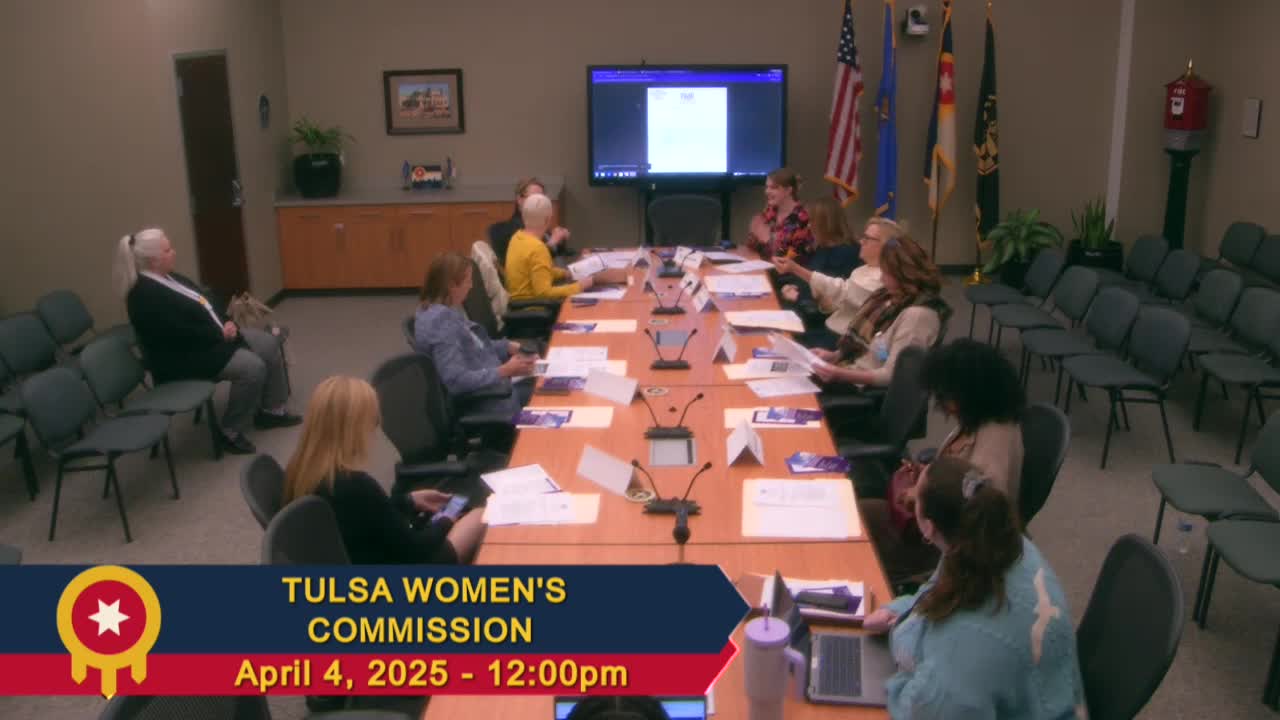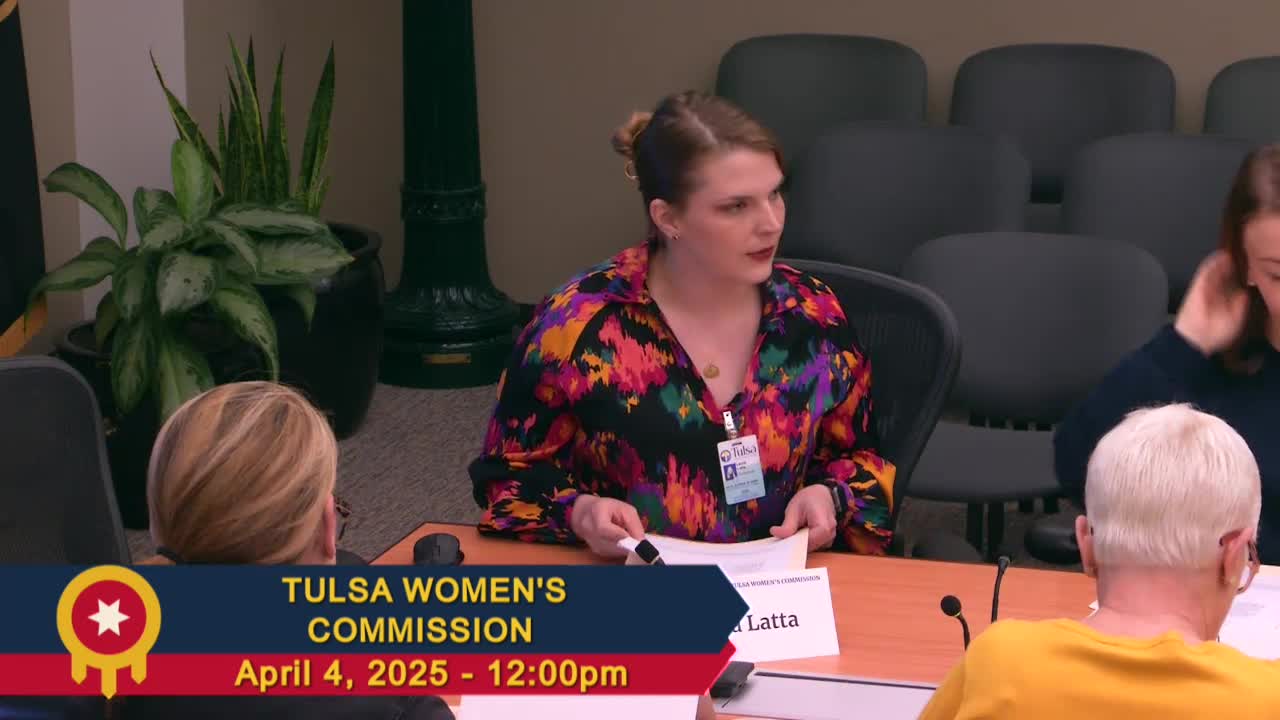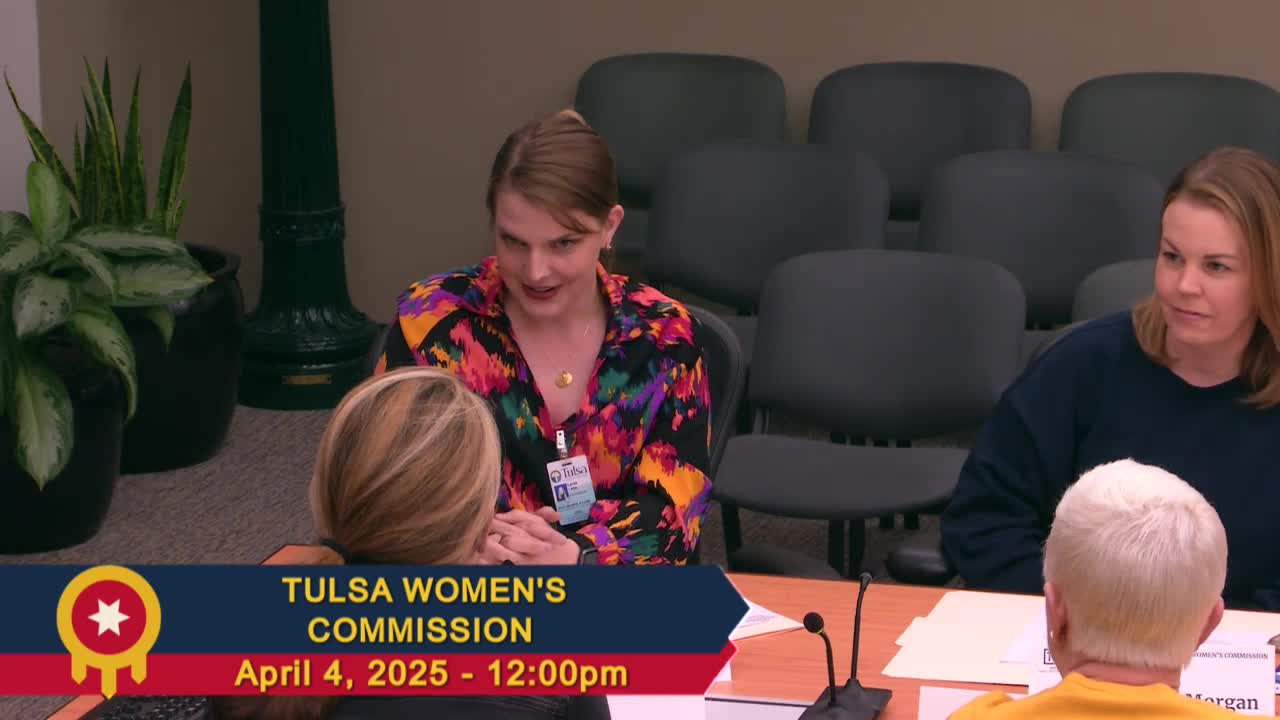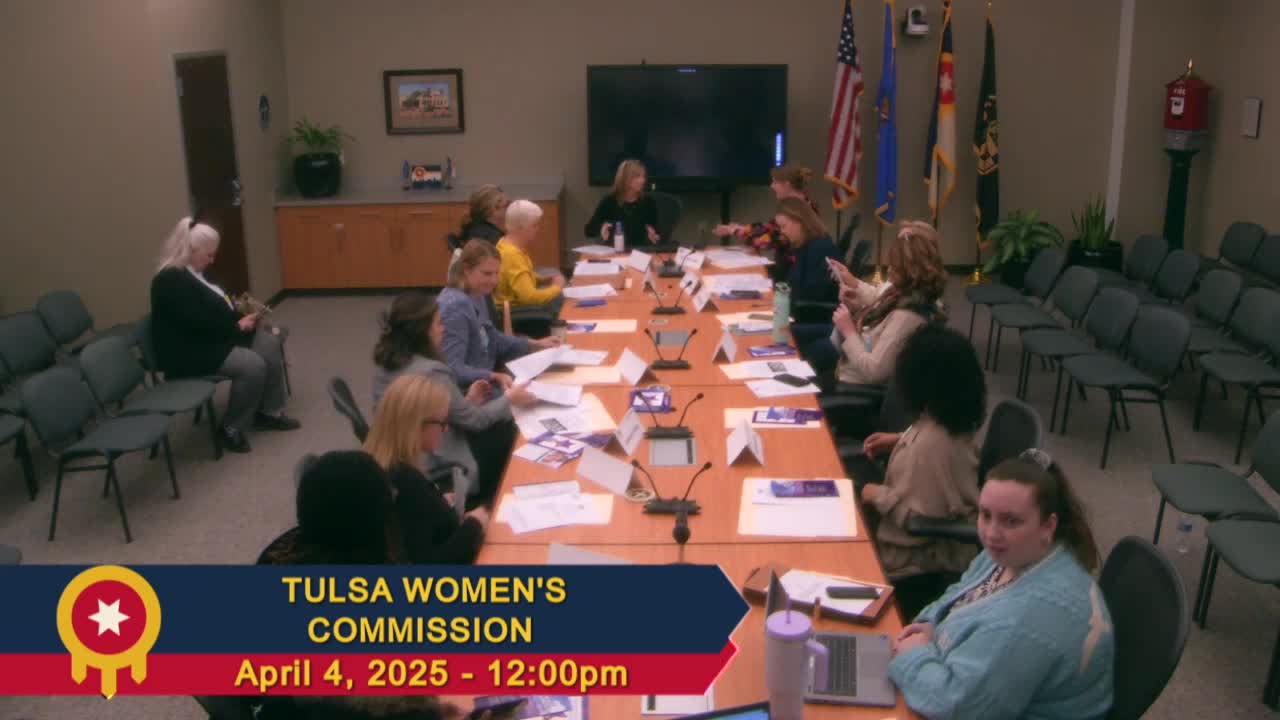Article not found
This article is no longer available. But don't worry—we've gathered other articles that discuss the same topic.

Family Safety Center outlines polyvictimization, services and funding uncertainty; new building planned for Oct. 2025

Tulsa Women’s Commission approves previous meeting minutes and adjourns after presentations

Commission warned state order requiring DHS five‑star rating could force many Tulsa child‑care providers to close

